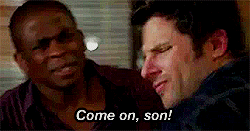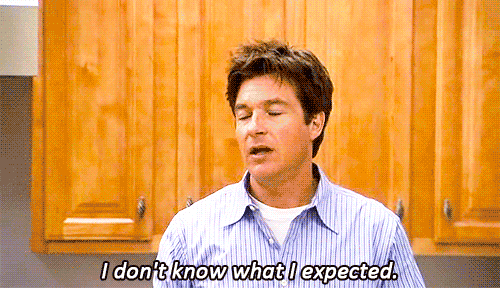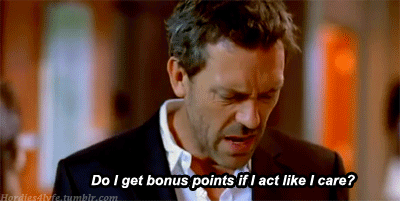This is another super long post, so it’ll be divided into two parts. Come back in two weeks for the second part and the last Self-Publishing 101 with Mama Bitchstress Post (unless I either come up with another post idea or I get questions I can answer).
All that other stuff we talked about? The writing of the book, the editing, the hiring of a cover artist, the making ebook formats, the uploading to resellers and getting the book in print, all while not being a dick client to people?
That was the easy part.
Now, no matter how you’re published–with a big commercial publisher, small press, or by yourself–you’re gonna have to sell some books. And if you’re self-published, you’re really on your own here.
If you’re here looking for some promotion secret, you’re not going to find it.
And that’s because there is no secret.
What works for one person won’t work for another. Also, dumb luck plays a factor. So although there will be some strategies/suggestions here, this post isn’t about “Here’s how to sell a million books!” but more about some things you need to know about promotion when self-publishing.
And first…
The difference between publisher support and self-publishing is vast.
First, there is a myth that “no publisher markets, no matter who you’re with you have to hustle.” That is completely and utterly untrue (some do, some don’t).
Now, “no publisher markets as much as the author wants”–that, that is true. If you’re with the big five, you might feel like you’re not getting the attention your book deserves, but that’s because a lot of us have the vision of paid book tours and the like. So no, you’re probably not getting shuttled here and there to sign books for huge crowds unless you’re already an established name, but your pub’s marketing department isn’t just sitting on its ass.* A lot goes on behind the scenes that you might not see. I’ve organized a conference before–you know publishers send ARCs and promo materials for all attendees? And reviews–they don’t just send them to a couple of bloggers but get your book listed in major trade journals. And you can knock bookstore placement all you want as B&N seems to become less and less relevant, but don’t make the mistake of believing the internet and ebooks are ubiquitous; they’re not. Physical bookstores still matter and browsing customers do buy books.
Small publishers? Eh. A handful are dedicated and invest time and money into promoting the works they publish, absolutely. But I’d say many epubs, if not most, don’t. They might announce releases a few ways, send them off for review at high traffic review sites where whatever kind words about your book will get buried, and then it’s on you. Best case scenario, they work with you and make it easy for you to promote by offering support (having firm release dates and pre-order, getting ARCs early for review, making arrangements with bookstores, having a presence at conventions). Worst case scenario, they will do none of that and possibly make it even more difficult to promote on your end.
If you are self-publishing, you’ve got none of that good stuff I mentioned about big publishers or the good small ones. You don’t have the clout of an established publisher behind you when you make a review request. You don’t have their deep pockets for ads (and Netgalley? NOT CHEAP). You have to experiment widely to figure out what works best and what gets the most bang for your buck without the experience of a marketing team. If you are self-publishing as an already established author, this isn’t something you’ll worry as much about**, but if you’ve got no other publishing experience under your belt or just a couple of small press titles, you’re being dumped in the deep end of the pool with rocks tied to your ankles and no idea how to swim.
And here is the most dangerous fact of all:
You think it’ll be different for you.
No matter how you try to go into self-publishing with your eyes open, you are still going to get slapped with reality because we always, always think we’re the exception to every rule. You will be seduced by the idea that somehow you will be different, that you are a special snowflake.
But you are not the exception to the rule.
It is going to be an uphill battle. People will not be flocking to you to buy your book. No matter how low your expectations are, you are going to sell fewer books than even that straight out of the gate. And the reason for that is because…
No one cares about your book as much as you do.
That was the very best piece of advice I ever heard from a writer over all the years I spent in writer networking groups listening to established authors talk. No one cares about your book as much as you do. Not your friends, not your family, and certainly not the total strangers you want to buy your book.
I can count on one hand the number of people I know on Twitter who buy my books. I can count slightly more on Facebook because I have family members there who used to come to my book launches. I can also count on both hands the number of writers on Twitter I know whose books I have bought. I don’t have the time/money to support everyone.
The reality is that most of your friends won’t buy your books let alone acquaintances or strangers, or if they do buy it, they won’t necessarily become a reader. The reason for that is…
You are not selling your book, you’re selling the idea that your book is worth the reader’s time.
Our time is limited. Let me tell you, after everyone I know dying this year, this has really hit home for me. The reader’s time is valuable. So you published a book? No one cares. No one cares unless it’s something they want to invest the time in reading.
Our reasons for reading vary, from wanting entertainment and escapism to gaining knowledge. This is one of the reasons why romance readers (not all but many) like a HEA and why they will burn your book in a fire if it doesn’t have one. They read romance to see the story concluded with a happily ever after. Their time is valuable and that’s what they want to invest in: the trials and tribulations of a couple who get a happy ending. So what is it with your book that you’re selling? What makes your book worth the reader’s time over the thousands and thousands of others out there?
Before you can even begin to promote your books, you need to ask yourself–and answer–those questions. If you can’t tell people (subtly, through marketing) why they should invest their time in your book, don’t be surprised when they shrug and move on to other entertainment.
Don’t whine publicly about your low sales.
Honey, I know. I know. And hey, a few self-deprecating comments or jokes is all good.
But your entire Twitter platform should not be daily whinage about how hard it is to sell books and how no one is buying them. First, because to potential customers, “no one is buying this thing” is not a good marketing tactic. Second, because people don’t like negativity and self-pity, especially when you’re socializing with other writers who are all rolling their eyes because YOU ARE NOT SPECIAL, EVERYONE’S SALES PROBABLY SUCK OR HAVE SUCKED.
There is a fine line between “Hey, these books aren’t doing great–if you dig them, please support them” and “No one buys my books and I don’t know why I even bother, woe is me, I just can’t catch a break”. One is asking for help (and asking allows for the freedom to decline), the other is making yourself look pitiful and no one is going to pity-buy your book (and if they do? that is not a reader for life you’re gaining).
I worked a chapbook fair years ago and all the volunteers had something for sale. One of them had a shift at the cash register and made frequent remarks like, “Oh, you’re buying a lot of chapbooks. I don’t see mine there. I guess no one’s buying mine.” Like, seriously STAP. Did that encourage anyone to go back and buy her books? No. What it did was make people uncomfortable and stop buying altogether until someone else took over her shift.
You can’t guilt people into buying your books by whining.

And also? When you make the choice to publish your work without a marketing department behind you and without any fanbase, don’t be so fucking surprised that this shit is hard. There is a reason the people who make up advertising and promotional departments are paid good money and that is because selling books is not as easy as throwing your shit up on Kindle and crossing your fingers. When you choose to do this on your own, whining about how hard it is will just make people roll their eyes.
Come back in two weeks for Part Two!
*That isn’t to say they can’t do more or that they don’t fuck up. They do. There is a night and day difference between some.
**Okay yes, you’ll worry. But the difference between a self-published author with no experience and one with a fan base from a commercial publisher is significant.


Recent Comments